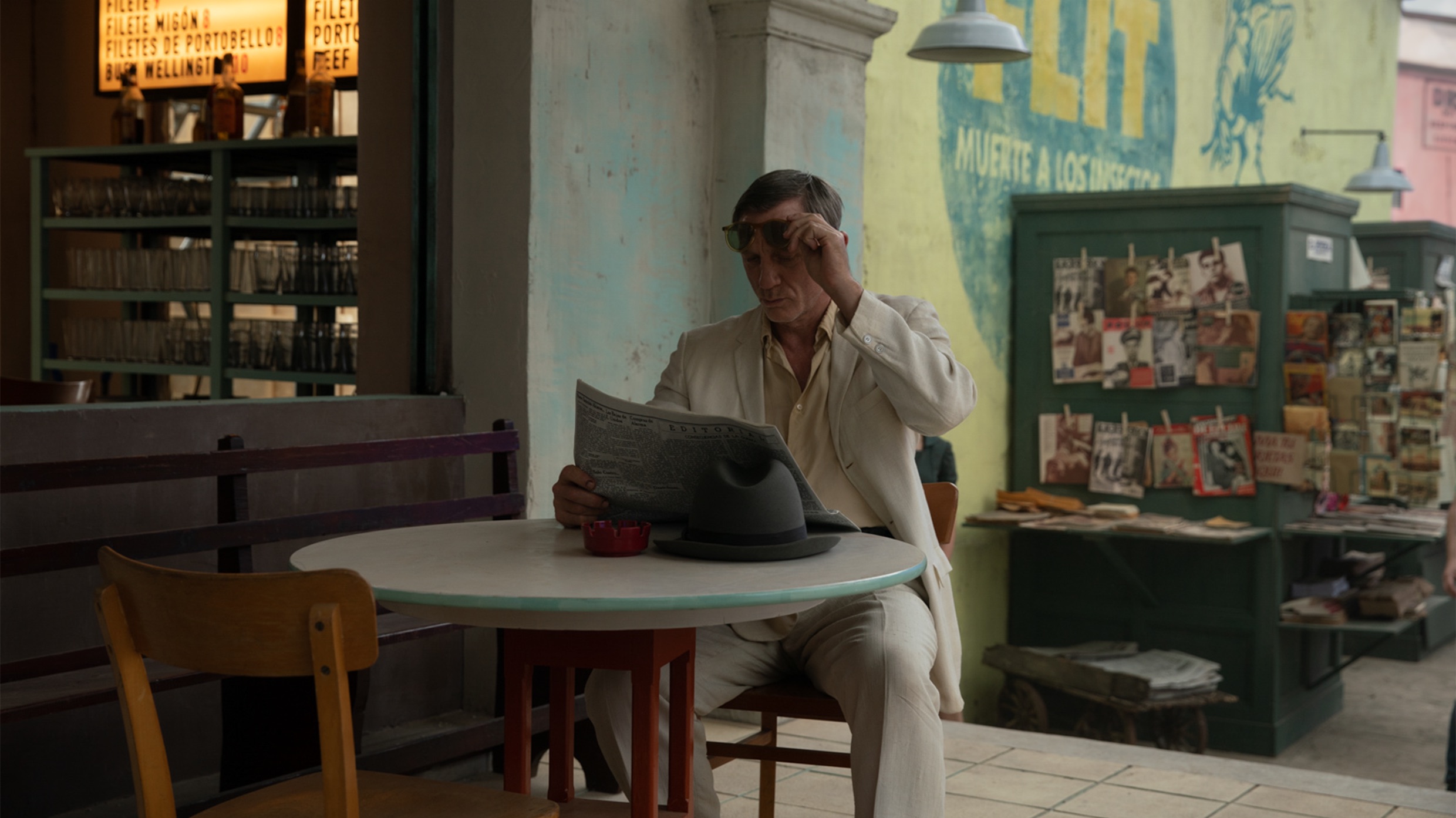Daniel Craig burrowing his face into Drew Starkey’s impossibly perky and pillow-like pecs. Bodies writhing in a synchronous dance under bright, cerulean water. A slow, lingering descent down Omar Apollo’s chiselled torso. A drug-fuelled haze in the jungle where body parts merge and you can’t tell limb from limb or man from man.
Everywhere in Queer, director Luca Guadagnino’s camera fixates on the human form with the reverence that has become the director’s calling card. Whether it’s the soft embrace of Elio and Oliver in Call Me by Your Name or the sweaty thighs of Art and Patrick in Challengers earlier this year, if there’s one thing Guadagnino’s going to do, it’s honour and highlight the male body—sweat and all.
It’s a cinematic obsession that comes across almost ironically in Queer, considering the film’s central theme of disembodiment and disconnection. Late in the film a character delivers a devastating revelation to our protagonist: “I’m not queer. I’m just disembodied.” It’s a feeling that may ring familiar to many queer and trans folks dissociated from our physical selves by circumstance or society.
But en route to verbalizing that conclusion, Guadagnino’s film actively works to, in fact, embody desire, lust and the endless search for connection through a tactile sense of intimacy. Based on the William S. Burroughs novella of the same name, the film’s central figure is equally as obsessed as the director in telling his story with the male body and all its possibilities. But unlike Guadagnino, he finds capturing and understanding the subject of his desire just out of reach.
Craig stars as William Lee, a semi-autobiographical surrogate for Burroughs. An American expat living in Mexico City in the 1950s, Lee traipses around from bar to bar in a rumpled linen suit on the hunt for pleasure and connection—both in the form of various drugs ranging from alcohol to heroin, and in the bodies of other men. He’s not the only queer there, though, as he’s part of a community of self-described queer artists and beatniks across a broad spectrum of gayness.
When a hot new thing comes to town in the form of Eugene Allerton (Starkey), Lee is immediately entranced. Starkey is impossibly triangular in stature, impeccably polished and tightly poised compared to Craig’s languid dishevellment. The two hit it off immediately, and Lee begins his tireless pursuit of Allerton. Though the pair ultimately have sex, it’s unclear for the majority of the film to both the audience and Lee if Allerton is queer—and whether he’s as interested in Lee as Lee (and Gaudagnino’s camera by extension) is interested in him, or if he simply appreciates the way Lee dotes upon him.
After leisurely lingering on Lee’s day-to-day life in Mexico City for its first hour, the back half of the film follows Lee and Allerton as they trek to South America in search of ayahuasca and, according to Lee, the possible telepathy the drug can provide.
Guadagnino hit a new level of mainstream fame with the massive commercial and critical success of Challengers earlier this year. For this cohort of new Guadagnino fans—or Daniel Craig fans excited to see the actor take on another queer role after Knives Out—Queer may seem like a lot. It’s artsy in its execution—from Trent Reznor and Atticus Ross’s variable score to leaps in logic, time and space—and it takes some big swings. Most notably, the film takes all of the sexual subtext plastered all over Challengers and makes it quite literal over and over again. Guadagnino even plays with audience expectations around modesty—where Call Me by Your Name faced criticism for “panning to a window” at a key sexual moment, here Guadagnino’s camera frequently lingers on the sexual action before a quick pan to a window … and then right back to the act itself, post-coital cum towel and all.
The result is a daring and complex film that, despite its period setting and source material, expands beyond both to pose fascinating questions about desire and existence that will be relevant to any viewer today. Working once again with cinematographer Sayombhu Mukdeeprom (Call Me by Your Name, Suspiria, Challengers), you can feel the reverence and honour in every shot of Craig’s and Starkey’s chiselled frames—as well as singer Omar Apollo, who appears as a fling of Lee’s in a role that’s almost exclusively in the nude. But capturing these bodies and desires on film is one thing. As Lee comes to realize himself over the course of the story, grasping at the tangibility of what you long for is much more challenging.
It’s refreshing to have a director like Guadagnino where we can expect this level of, well, “gayze” from. True to its title, Queer is incredibly queer in its sensibilities and themes. What does it mean to love and desire, and to be loved? And can we ever reach the level of understanding and connection that we desire with another person?
After screening in Venice and at the Toronto International Film Festival, Queer will get a wide release from A24 later this fall. Here’s hoping that his mainstream success will allow Guadagnino to keep making wonderfully weird and horny stuff like this in the years to come.


 Why you can trust Xtra
Why you can trust Xtra


